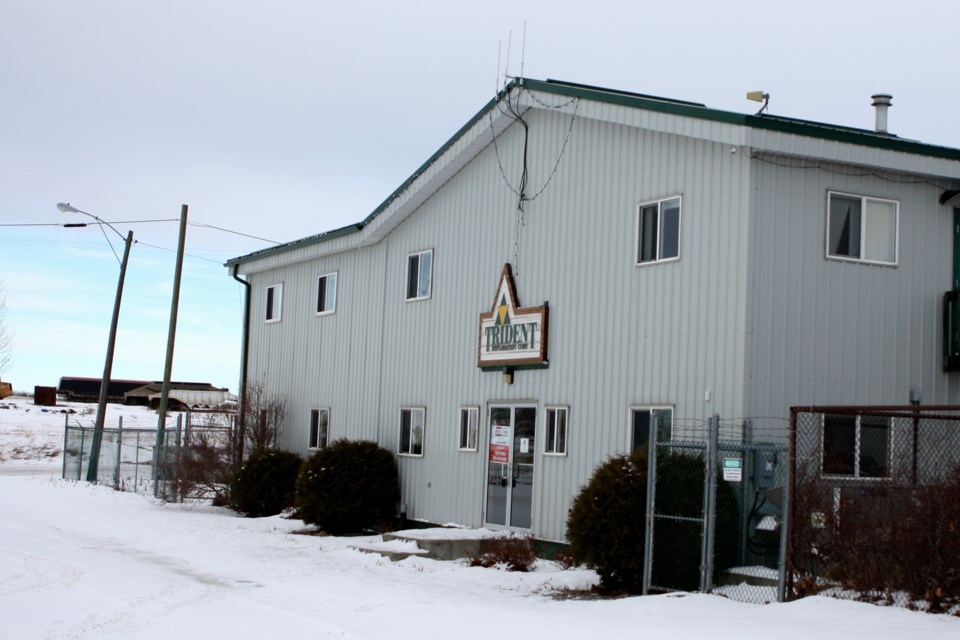The pumpjacks scattered across the rolling golden fields behind Anita Mepham’s family farm ground to a halt, like many did across southern Alberta’s rural Starland County, when natural gas company Trident Exploration Corp. abruptly shut down, abandoning nearly 4,400 sites and leaving behind hundreds of millions of dollars in unpaid debt and reclamation expenses.
“They’re not paying the taxes, they’re not paying the rent. All these wells here, we’re not getting paid for,” Mepham said.
Mepham feels the growing frustration shared by Albertans living in rural counties and municipalities who are getting burned by oil and gas companies skipping out on their bills – including property taxes, lease payments and site reclamation obligations – as weak provincial legislation leaves counties little hope of ever collecting on those debts.
“We have to bite the bullet and pay it,” Mepham said. “We’re the end of the line.”
End of the line
When Calgary-based Trident suddenly ceased operations on April 30, 2019, after three months of negotiating with the Alberta Energy Regulator (AER), the company's board of directors resigned and left the Orphan Wells Association (OWA) – which oversees the closure of oil and gas wells, pipelines and facilities that no longer have a company to operate them – on the hook for $329 million in associated site abandonment and reclamation costs.
When an oil and gas company in Alberta goes bankrupt, the Alberta Energy Regulator and the Orphan Wells Association collect first. In Trident's case, according to court documents filed in the Court of Queens Bench in Calgary, "the only stakeholders who can realistically receive any benefit from the sale of Trident’s assets ... are AER and OWA.” Once they take their share, there will be nothing left for anyone else to collect.
This includes millions of dollars in unpaid property taxes owed to Starland County.
Reeve Steve Wannstrom said Trident is just one of six oil and gas companies that owe the county a two-year combined total of $6.8 million in unpaid property taxes – money that would normally go toward maintaining the infrastructure these companies use, such as repaving roads and repairing the county's 114 aging bridges.
Four of those companies are insolvent, Wannstrom said, but two are still operating.
Trident’s property taxes made up a quarter of the county's total tax revenue, Wannstrom said, and its closure blasted a $3-million hole in Starland's 2019 budget. The closure forced the county to hike property taxes on residents by eight per cent to make up half the difference. The rest requires the county to cut spending to cover only the barest necessities.
“You can only sustain that so long,” Wannstrom said.As Starland County faces the largest drop in its tax base ever recorded, mounting pressure from the province downloading more costs onto municipalities (such as the costs of increased policing) is pushing its budget toward a breaking point.
“When do we get to say there is no more?” Wannstrom asked, throwing up his hands.
His county isn't alone.
Industry on the edge
Rural Municipalities of Alberta (RMA), an advocacy association representing the province's 69 counties and municipal districts, estimates oil and gas companies owe $173 million in property taxes alone, more than doubling an $81-million estimate from March 2019.
Politicians have warned against pushing struggling companies too hard to pay off their debts to municipalities, as that could force more of them over the edge into insolvency.
“We’ve seen a number of bankruptcies in the past year, a number of them are barely hanging on,” said Alberta Premier Jason Kenney, addressing the issue on Jan. 21.
“They simply don’t have the cash in some cases to pay those property tax bills. If those businesses go under, then there is no revenue stream for linear taxation going to those municipalities, and in the worst case scenario, their liabilities for remediating their wells end up falling back to the Orphan Well Association and potentially to the Alberta Crown.”
Nate Horner, UCP MLA for Drumheller-Stettler – who represents some of the hardest-hit areas of the province – said he knows of at least three more companies as big as Trident on the verge of collapse, each threatening to send a “ripple effect” through their surrounding rural economies.
When they do, Horner warned, it will ultimately be Alberta’s taxpayers “on the hook.”
'Bad deal'
While Kenney said there are provisions under the Municipal Government Act for municipalities to take civil action against companies refusing to pay, Wannstrom said, “If you talk to any lawyer, they’ll say you don’t have a hope.”
This has created a climate of concession bargaining, Wannstrom added, where oil and gas companies that are still operating are striking deals to reduce the amount they’ll pay, knowing the municipalities can’t afford to say no.
“Every day, we get another call that an oil company wants to come in and make a deal – they don’t want to pay any more," Wannstrom said.
Ron Huvenaars, chair of Action Surface Rights Group – a resource and energy development advocacy group representing around 200 southern Alberta landowners – said the provincial government has “sent the message to companies that it’s okay to keep producing wells but they don’t have to honour their commitments to the farmers or impacted communities."
On Jan. 23, the Action Surface Rights Group called on farmers and ranchers who are either going unpaid or undercompensated for the wells on their land to take matters into their own hands.
"It’s time to safely turn off the power and safely shut off the valves until these delinquent companies pay the money they owe,” said Action Surface Rights Group member Daryl Bennett.
Wannstrom does not support such drastic and potentially dangerous action from ranchers and farmers, but he understands the call is rooted in frustration from Albertans who feel they have little other recourse against unresponsive politicians and powerful oil and gas companies.
“You’re trying to work together and keep everything afloat. It’s a bad deal," Wannstrom said.
People hit hard
Wannstrom said his county's residents are getting burned at both ends. Many of those who are now facing an eight-per-cent jump in property taxes on their homes were also employed by shuttered oil and gas companies and have lost their jobs, or have unpaid leaseholds on their land owed by those same companies.
“They didn’t get the last month or two of their wages, plus they get hit by higher taxes and they’ve lost their jobs,” Wannstrom said.
Michichi resident Amber Spark says she has seen the property taxes on her home in the hamlet increase by $150 in the last two years.
While her family has been able to absorb the extra cost, she knows that may not be as easy for others in her county. The latest MNP Consumer Debt Index survey, conducted quarterly by Ipsos, revealed nearly half of Albertans are $200 away from insolvency at the end of the month, and half don’t believe they can cover their living expenses without taking on more debt.
Spark also knows her county's council has little choice but to hike taxes.
“It is what it is,” she said. “Hopefully, one day it will go back down.”
Mepham worries the economic crisis brewing in Alberta’s rural communities as oil and gas companies flee or fail in the face of low global prices for their product could pose an existential threat to the rural way of life, making it harder for families like hers to afford to stay.
“It hits people hard.”
– This is Part 1 of a three-part series, funded by the Local Journalism Initiative.





